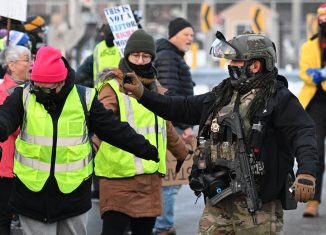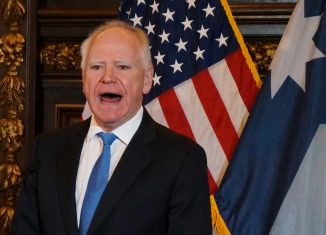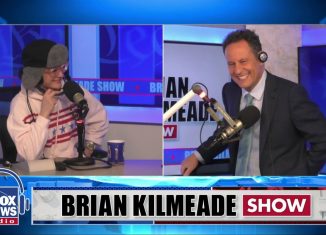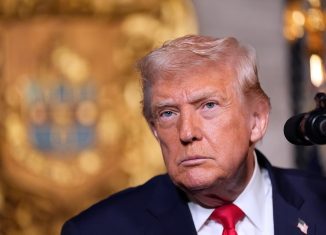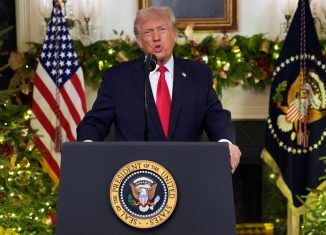Bill O’Reilly: If Players Want To Protest The National Anthem They Should Stay In The Locker Room
Bill O’Reilly, author of the new book “Killing England: The Brutal Struggle for American Independence”, joined Brian Kilmeade to discuss how the ongoing national anthem protests in the NFL have morphed into anti President Trump protests, why players should stay in the locker room during the singing of the anthem instead of taking a knee and how President Trump should not have said players need to be fired for dissenting during the national anthem.
Listen here for the full interview
Click here to order “Killing England: The Brutal Struggle for American Independence”
BRIAN KILMEADE, HOST: I wonder how Bill O’Reilly feels about that.
Joining us now, one of the most successful hosts, news anchors and certainly the most successful authors in the country.
He’s got a brand new book out called “Killing England.” It’s fantastic.
Bill O’Reilly, welcome back to THE BRIAN KILMEADE SHOW.
BILL O’REILLY, AUTHOR: Kilmeade, how are you doing, man?
KILMEADE: Well, first off, do you approve the name change?
It was KILMEADE AND FRIENDS and I changed it more Brian-centric.
Are you OK with that?
O’REILLY: You know, look, you’re the driver of the car, Kilmeade. If you want to do that, I’m right behind you.
KILMEADE: Oh, really?
Since when?
O’REILLY: I don’t know, about 30 seconds ago…
KILMEADE: I thought so…
O’REILLY: — when you gave my book a plug.
KILMEADE: Exactly.
So Bill, great job last night with Sean. And it’s just so apropos. Usually, when you write a history book, you think to yourself, well, what is the news hook?
My goodness, do you have a lot of hooks…
O’REILLY: Yes, oh, boy.
KILMEADE: — to (INAUDIBLE).
O’REILLY: We were lucky.
If people didn’t see HANNITY and O’REILLY last night, it’s posted on billoreilly.com, the whole thing. And it was, I thought, a very effective message that both of us were sending to the far left which is engineering a lot of bad things in this country, including partly, partly the NFL controversy.
And what Kilmeade is referring to is that “Killing England” is basically the seventh — it’s the seventh in the “Killing” series. And what we do is try to humanize history, try to put you there at Valley Forge, you there at Yorktown and all of these places.
But more importantly, we tell you who Thomas Jefferson, the slave owner, was, who George Washington, the slave owner was, really was — people, because now, the far left wants to marginalize Jefferson and Madison and Washington and Franklin.
And they have a really insidious goal, Kilmeade, that we talked about last night.
KILMEADE: Yes, a couple of things.
I want to get into the profile of them and the color that you bring and the reality and the risks that they took.
But I also want to talk about the big picture.
And Winston Groom is also a noted historian. And he said, “I am not proud that my ancestors were slave owners, but nor do I think it’s right for me to put the values of today on people that lived over 200 years ago.”
Do you feel the same way?
As much — as abhorrent as we see slavery, don’t you think it’s arrogant of our generation to think we know better, that some 19-year-old feels he knows better than Jefferson and needs to drape that statue in some type of cloth or chop off the head or color in the statue of Francis Scott Key?
O’REILLY: Or change the name of the school from Thomas Jefferson to something else, as they’re debating in Dallas, Texas right now. So it’s very extreme.
I have a bit different take. I like to think that if I were around back then, in 1772, or 73, 84, run-up to the Revolutionary War, that I would have been like John Adams, that I would have been an abolitionist, that I would oppose slavery.
I like to think that my conscience would have been formed in that direction. But I’m not sure. I’m not sure.
But I think that the America of today has to evaluate the founding fathers in totality, in totality.
So, yes, Washington and Jefferson held slaves. All right, then that was wrong. I believe it was wrong.
But what they also did to give billions, with a B, of people freedom all over the world, because by extension, America’s wars have freed billions of people, what they did, they gave us freedom of speech and expression and religion.
And the suffering they went through personally to make that happen has to be part of the evaluation.
But the far left in this country wants to change “The Constitution.” They want to change the economic system. They don’t like anything about the USA.
Colin Kaepernick does not like America. He believes that police officers are actively going out every day and hunting down black men in order to give them a hard time or even kill them. That’s what Colin Kaepernick believes.
OK. He’s entitled to his belief. But it’s wrong. It’s fallacious.
And so “Killing England” is a book, if you read it, it’s fun to read, but you’ll actually become armed and dangerous with facts, whereby you can go into the Dallas School Board meeting and say you know what, you people are pinheads, you don’t know what you’re talking about when you mentioned Thomas Jefferson or George Washington. You don’t know who they were or what they did. But I know, because I read this book and I have the facts.
So that’s the worthiness of it.
KILMEADE: So you have a lot of guys who get together and they decide that they are going to throw off the cloak of English domination. But instead of starting at the Revolutionary War and making it readable, like you’ve had in your other books, and making it active and making you feel like you’re on a journey, you take a step back and you get us an idea what Colonel Washington is about.
So he’s not just a guy who has great instincts and becomes a general in a brand new army, he’s someone who made some mistakes as a colonel fighting with the British, right?
O’REILLY: Yes, we start the book in the French and Indian War, which, of course, most people have no idea what that was about.
But the British and the Virginia militia banded together — and Washington was a colonel in the militia — to try to stem the French incursion into western Pennsylvania, Pittsburgh now, OK?
So they marched out there and they got their butt kicked. The French and the Indians decimated the British under Braddock and Washington was one of the few officers who wasn’t killed.
But the reason we open with that is to show how brave George Washington was as a man. His courage — I have very rarely seen a human being on this planet with more courage than George Washington.
So we make him come alive for you as a person. He’s only 25 years old when this happens. But he’s so brave, he’s got, what, three, four horses shot out from under him. All the other officers are dead or wounded. He’s still riding into the fire. I mean this is the kind of stuff that we do to make these icons come alive as people to the American people.
And that’s why, you know, I urge people to read the book.
KILMEADE: Right. And a couple of things, too. Some bullets get stuck even in his clothing. They don’t go to his heart. And he’s shot —
O’REILLY: That’s right.
KILMEADE: — (INAUDIBLE) and his horse gets shot out, but he doesn’t get killed. Yet there’s only really, arguably, one man that would bring America with tremendous leadership and courage, to bring America through the Revolutionary War, overcome the odds and beat the British, and it’s that guy, who ends up being our general.
O’REILLY: Yes, the father of our country is aptly named. But for the far left kooks that operate, you know, today, without any restraint, he’s bad, because he had slaves. Washington held slaves.
So if you read the book, then you can decide for yourself. I mean that’s really what I want everybody to do. I’m tired of this — you know, one of the things that bothers me about the football players is that many of them are uniformed. And I’m not being supercilious. Word of the day, supercilious. I’m not being arrogant.
OK, but they don’t know much. And if I went and passed “Killing England” out in the locker rooms of the NFL, most of them wouldn’t even bother reading it. They wouldn’t even pick it up, because they don’t want to know much. It’s a pack mentality.
So Colin Kaepernick, who I think is a sincere man. I think he’s misguided, but sincere. He does something and then all of a sudden it starts to catch on. And then Trump jumps in and it becomes an anti-Trump protest. That’s what it’s morphed into now.
But the American People Poll shows today, I’m sure you reported this, Kilmeade, 65 percent of Americans do not want football players kneeling or disrespecting the flag and the national anthem. That’s a lot. Sixty-five percent is a lot.
KILMEADE: It’s huge. And so is 10 percent a lot in audience loss. And then you add in the CTE and head injuries, and the NFL, the behemoth of sports, has really got problems they have to address quickly.
Now, Bill O’Reilly is here.
You can listen to him daily on billoreilly.com. He’s got his podcast up there. It’s excellent, as usual.
And Bill, so many times when there are complicated situations, you had this knack — and we got used to it for 20 plus years — of boiling it down to simple thoughts and black and white issues on something very convoluted.
So I want to bring you to something else, and that is when I get in front of an audience on my book tours — so I did “Thanks To You” and your inspiration, and I make that clear. Glenn Beck did it on television. You did it writing.
That made me feel as though I could do “George Washington’s Secret Six” and there would be an audience for it if I did it right. And “Thomas Jefferson and the Tripoli Pirates” and now Andrew Jackson.
But when I get in front of audiences and — who are educated, but just not into history — I cannot tell you how many people come up to me afterward and said, I didn’t know any of that.
O’REILLY: Right.
KILMEADE: So that’s why I think it’s important —
O’REILLY: You know, I —
KILMEADE: — your books do a service.
O’REILLY: It’s interesting, you have a new book on Jackson, Andrew Jackson, in October. In “Killing England,” there’s this — there’s a — I don’t know whether you have this story in your book, but there’s a story about Andrew Jackson at 12 years old and how he was fighting in the Revolution in — at age 12.
KILMEADE: Yes.
O’REILLY: And these are fascinating men.
But, Andrew Jackson was very brutal to the Indians, to the Native Americans.
So it’s the totality of a man and a woman’s life that counts.
And so you and I, we write these books and we’re trying to give people a true vision of how America got to the place we are today. And that’s why they’re very valuable books. They really are.
KILMEADE: I think they tell the story and a lot of — most of yours get made into movies.
So, Bill, moving on, I just think that the president of the United States got this. He brings up the flag issue. I was on the record on Monday and I got a lot of blowback on this show and on social media by saying, listen, I was, for a year, saying that it’s a huge deal sitting down during the national anthem when I saw kids, I thought it made it worse and talked about — I talked to you about that on your podcast Monday.
However…
O’REILLY: Right.
KILMEADE: — having said all that, I thought the president made it worse when he brought it up Friday.
Do you agree or not?
O’REILLY: Well, it depends what you mean by making it worse. You know, this is a very — this is Donald Trump that everybody should understand. So he wants to draw attention to the issue. And he knows that if he Tweets about it, that’s going to happen.
He also is genuinely angry. I mean I have attended lots of sporting events with Donald Trump, OK?
So I’m like the expert on Donald Trump and sports right here.
KILMEADE: You are.
O’REILLY: You’re talking to him, OK?
So he is personally offended by this conduct of the NFL players.
And the third thing is, he realizes that if he takes the side of you should be standing for the flag, that his base and others will rally to him player. So it’s a political move, as well.
So you’ve got three things in play. If I were the president, I would have probably made a statement about it. I don’t think I would have said they should be fired. I don’t believe that. But if I were the owner, as I wrote in my column for “The Hill” this week, I would tell my players if you want to dissent, I respect it, but you can’t come onto the field and have a political message, because the league does not allow it. So you have to stay in the locker room until “The Star-Spangled Banner” is over.
That’s what I would do. And if they defied me, I’d fine them a lot of money.
KILMEADE: Well, see, I would handle it differently in that I hated that The Steelers stayed back. They had their coach saying let’s stay in the locker room so we don’t get involved in politics.
Well, when you don’t show up on the sideline, you’re involved. You made a —
O’REILLY: But here’s the…
KILMEADE: — (INAUDIBLE).
O’REILLY: — here’s the beauty of my solution as opposed to your solution. If The Pittsburgh Steelers en masse stay in the locker room…
KILMEADE: Yes?
O’REILLY: — their fans know it. And so their fans can decide whether to spend the $500 a game…
KILMEADE: Right.
O’REILLY: — because that’s what it costs for parking and food and everything else — to go see them. And that’s our society. So if they are going to be that bold and no one is going to come out on the field for the national anthem, well, let the Pittsburgh Steeler fans see that.
KILMEADE: Gotcha.
O’REILLY: And, you know, all of this linking of arms and arm on the shoulder and all of this namby-pamby stuff, you don’t want to stand?
Fine. You’re not allowed to come out. And if I’m the owner, I’m standing there in front of my bench with my hand over my heart embarrassing those people who won’t come out.
KILMEADE: And Bill, just for the record, do you always believe your solutions are better than mine?
O’REILLY: Pretty much, Kilmeade. I never had to think that not only do I believe it, but the, you know, the consuming news audience does, as well.
KILMEADE: Yes, I’m going to have Franklin’s poll that out. We’ll see what happens.
O’REILLY: Yes, let’s poll that. That would be good.
KILMEADE: Yes.
Hey, Bill, by the way, I actually — I gave you more money, because I download your books so I can highlight them on my ebook, so I gave you more money, even though you gave me a free book. It’s called — it’s Bill O’Reilly and Martin Dugard, who is a genius, too, called “Killing England: The Brutal Struggle for American Independence.”
Bill, it’s an awesome book.
Thanks so much.
And I look forward to talking to again soon and listening to your…
O’REILLY: All right, Kilmeade.
KILMEADE: — and watching your podcast.
O’REILLY: I appreciate you having me on the show.
KILMEADE: You’ve got it.
O’REILLY: Thank you.
KILMEADE: He is Bill O’Reilly.


